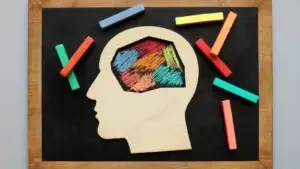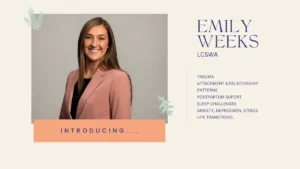If you’re in the midst of moving in together or getting married, you’re likely looking forward to the fun times that come along with it – new places to explore, new things to try, and most importantly, new people to share them with. However, if you’ve been through this before and it didn’t end well, you may be hesitant to do it again. If you’re afraid that history will repeat itself, relationship counseling can help you put a healthy foundation in place for new relationships. Here are five ways relationship counseling can help build a healthy foundation for your new relationship.
#1 – Understand Differences in Communication Styles
Differences in communication styles are very common in relationships. The type of individual you are interacting with dictates the way you should interact with them. In other words, your partner needs to communicate their needs and wants differently than your boss would need to communicate their needs and wants because he or she will respond differently.
If there’s one thing that can be used as a basis for conflict in any relationship, it is miscommunication. It doesn’t matter if you have differing opinions on what to eat for dinner, where to go on vacation, or what movie to watch. If both parties aren’t clear on the details, these small things can turn into major disagreements. Miscommunication isn’t just frustrating, but it can also result in conflicts that could damage your relationship.
To achieve success in new relationships, it is important that you understand the differences between how people communicate.
Men tend to use more directives (e.g., I want) while women use more questions (e.g., Why don’t you want?) when communicating about needs and wants. We tend to think of communication styles as being either passive or assertive. By understanding the different ways partners express themselves and adjusting accordingly, you’ll prevent issues before they happen and cultivate a strong foundation for your new relationship. Here are some tips to consider when talking to your partner who has a different communication style than you:
♦ Be Patient: When you’re dealing with someone who communicates in a different manner than you, patience is key. They may take longer to make decisions and need more time to process information; therefore, the best thing for you to do is show understanding. Communication requires work from both sides of the spectrum; so by being patient and giving space when needed, you’re doing everything possible to ensure a healthy relationship.
♦ Don’t Expect One Person to Read Your Mind: Many individuals get frustrated when their partner doesn’t know what they want without being told. However, this shouldn’t be surprising considering most couples have varying communication styles. In order to avoid frustration, never expect your significant other to read your mind. Communicate clearly and ask often. Be sure to speak up if you feel like something isn’t getting through and listen attentively when your partner speaks.
#2 – Learn How to Communicate About Feelings in a Healthy Way
One way to foster a healthy relationship is to talk about your feelings with your partner in a way that feels good. This can be hard if you don’t know how, but that’s where counseling can help. Feelings are often so strong and what is comfortable might be challenging because feelings are hard to talk about or put into words, but it is worth it!
These five tips will help you express your feelings in the healthiest way possible:
1) ask yourself what you’re feeling before communicating
2) find an expression that fits your feelings
3) try not to blame or criticize your partner
4) keep things positive by asking questions rather than making statements
5) remember that this is a process and it takes time
No one has mastered expressing feelings yet, so don’t be too hard on yourself. There is no set formula for talking about your feelings – just do whatever feels right and do it as often as you need to until it starts getting easier. Talking about your emotions with someone who cares about you goes a long way in helping build trust, understanding, and intimacy.
Give your partner the chance to support you when something upsets you, listen without judgment, and encourage open dialogue even when they may not agree. It is important to communicate in a safe environment where both partners feel safe enough to share their thoughts and feelings without fear of being judged or rejected.
#3 – Learn Empathy & Compassion Through Experiential Techniques
Having empathy and compassion is an important component of any relationship, yet it’s something that many people forget to practice until they experience a challenging moment. In fact, the first step in this process is recognizing your partner’s point of view. One way to do this is by using experiential techniques. Some are meant to remind you how hard other people work on a daily basis while others may teach you how to empathize with your partner’s desires or emotions. Ultimately, experiencing these perspectives firsthand will help you be more compassionate towards your partner.
To put it simply, it means being able to show some understanding when their feelings get hurt. The next time someone says something that hurts your feelings, take a minute before you respond (especially if what they said was accurate). Think about why what you said might have bothered them or how different their perspective might be than yours. It can also help to talk through what happened together instead of trying to take sides right away. Recognizing the viewpoints of both parties is key to having empathy and compassion. When you’re willing to listen to another person’s perspective, it shows them that you care enough to try.
#4 – Practice Setting Boundaries in New Relationships & Building Trust
Setting boundaries in relationships and building trust can be difficult, but necessary to sustaining a long-lasting healthy relationship. It may be hard in the moment, but will ultimately lead to greater self-confidence, intimacy and stability in your relationship. Try to view the struggle as part of a larger growth process and don’t expect yourself to always succeed.
Relationships take work and commitment, but setting boundaries in your relationship is one important way you can contribute! A skilled therapist can help you explore these concepts, figure out where you want to draw your lines, and learn how to communicate effectively while still taking care of yourself.
Below are some tips on how you can set clear boundaries and build trust in your new relationship.
1) Be assertive with your thoughts and feelings in conversations with your partner. Ask them to clarify their position if it isn’t clear, or ask for time to think about the issue.
2) Practice active listening by listening without interrupting and repeating back what the other person said in their own words before speaking again.
3) Show appreciation of your partner’s accomplishments or assistance at least once per day.
4) Say I’m sorry when you make mistakes and apologize when you say or do something that hurts your partner’s feelings; this is a sign of trustworthiness in the relationship because it demonstrates willingness to admit when we are wrong, repair any harm done, and strive to do better next time.
5) Accept apologies from your partner so they feel safe sharing vulnerable parts of themselves with you.
#5 – Understand How Addiction, Trauma and Grief Affect Intimacy & New Relationships
It’s important to acknowledge the often unspoken and invisible roles addiction, trauma, and grief can play in your current relationship. With more understanding and compassion, it will help you create a healthier future.
For example, an individual with a history of trauma may need help learning how to regulate their emotional responses during conflict or be more aware of triggers that could lead to an emotional response (e.g., PTSD).
A partner of someone who is struggling with addiction may need support in learning how to be non-judgmental and accepting when confronted by relapses or active use of substances.
One may also want to explore ways of dealing with these experiences individually so they don’t interfere with intimacy and connections (e.g., open communication, constructive feedback, empathetic responses).
Finally, it’s important to understand the grieving process and its impact on intimacy: loss of a job; loss of health; loss of a loved one through divorce/death. Loss brings about many challenges such as self-doubt, guilt, anger and sadness – all which have the potential to affect relationships.
It’s helpful to find a qualified counselor that specializes in relationship therapy as there are many tools available for improving your relationship. Relationship counseling can help you build a healthy foundation for your new relationship by improving your communication, strengthening trust and learning how to manage conflict so your relationship can grow and flourish.
Start Therapy for New Relationships in New Bern, NC
Starting and cultivating new relationships is much easier said than done. Our team understands the importance of creating a healthy foundation, and our therapists can offer support. We believe that you deserve it. Get started with therapy at our counseling practice in New Bern, NC with these steps:
- Fill out this consult form.
- Read about our skilled therapists.
- Begin cultivating stronger relationships!
Other Services at Renewed Wellness
At our New Bern, NC-based therapy practice, we are happy to offer support for a variety of mental health concerns. Our team offers mental health services including therapy for anxiety and stress. Our therapists specialize specifically in chronic illness counseling and addiction counseling. For those going through a life change, we also offer life transitions counseling. Let’s work together to get you to a good place!








